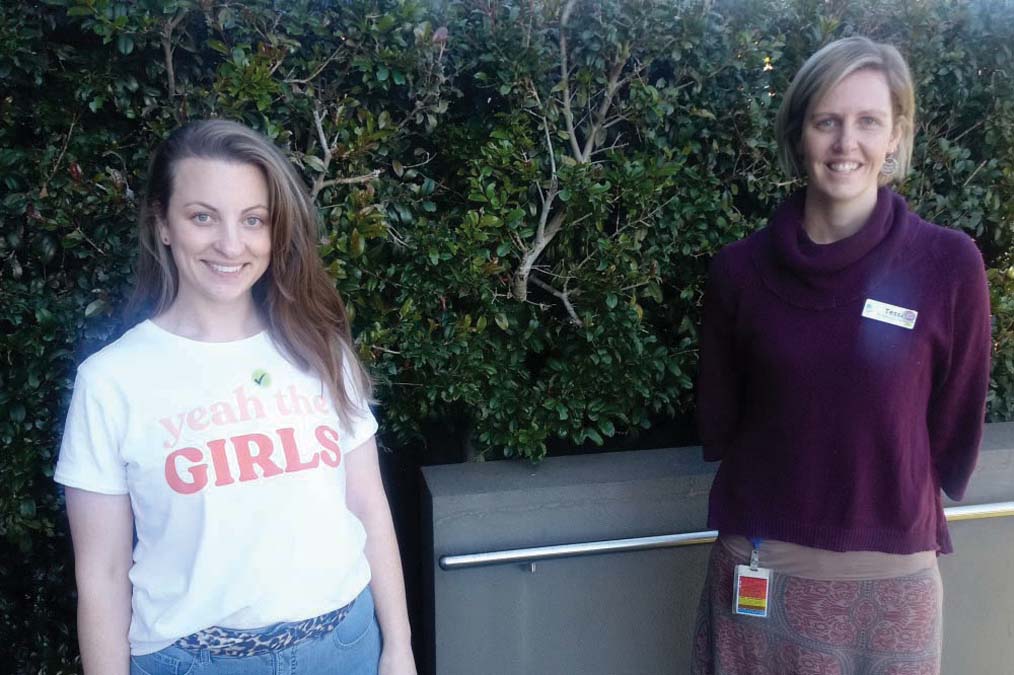THE persistent pain management service team at Peninsula Health has helped to change the life of a Langwarrin mother living in near constant pain.
Terryn Huggard first felt discomfort on the right side of her body when she was just 12-years-old. Since then, things have only become worse.
“Ongoing body pain stopped me from doing many everyday tasks to my full ability and drastically reduced my enjoyment of life in general. I’m only 33. These are things that I want to do. Things my body should allow me to do,” Ms Huggard said.
“The fear of my pain worsening would stop me from moving my body in the way it is meant to, even walking around the block or the suggestion of a family bike ride would cause me worry of how my body would feel afterwards.
“It didn’t matter who I turned to, countless professionals told me my pain was from previous injuries and I just had to deal with it. I could not get any answers – the suggestion always was to take some pain medication or just stop thinking about it.”
Since being referred to the Peninsula Health service running at The Mornington Centre, Ms Huggard said she has made “outstanding” progress.
“The persistent pain management team has opened my eyes to how my nervous system produces pain as a protective response to a perceived threat, using science and data alongside genuine care and compassion to teach me how to better manage what my body is dealing with,” she said. “Throughout my life it has ripped me away from my hobbies and things that defined me. I used to play competitive netball in my teens and loved the power my body gave to the game. Netball took a seat way down the back for 14 years for fear it would cause my pain to flare up, and that I was at high risk of injuring myself. Now I’m back on the court, sometimes playing 2 games a week.”
Peninsula Health persistent pain management service coordinator Tessa Heine said persistent pain is complex to treat. “This can be pain related to conditions such as arthritis, diabetes or fibromyalgia, pain continuing after an injury has healed, it may begin at a time of particular emotional challenge, or can occur where the cause is not known,” she said.
“Learning about strategies to change the pain experience is not enough, it takes repeated effort to create new pathways in the brain and Terryn challenged her automatic thoughts, movements and responses to pain. She did the work and got the results, and we are so pleased to see that she has continued to improve after completing her work with us.”
To learn more about the service call Peninsula Health ACCESS on 1300 665 781 or visit peninsulahealth.org.au/services/services-n-z/integrated-pain-service/

